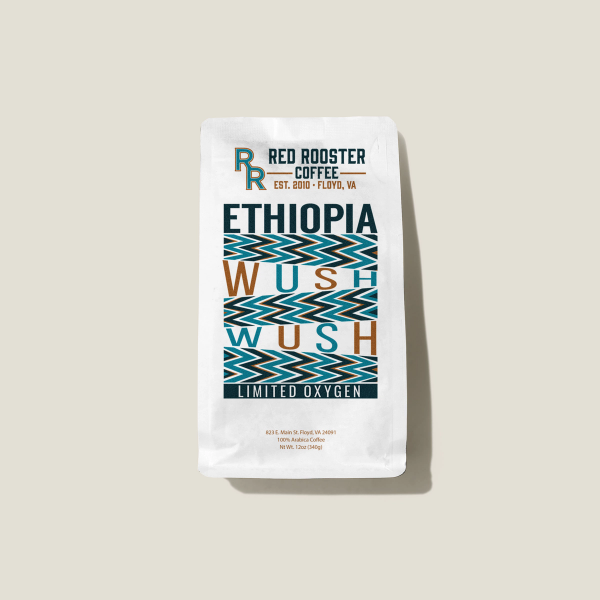Ethiopia Wush Wush Limited Oxygen
12 oz. Bag — $30
This coffee was grown by smallholder farmers in the famous Keffa cloud forests of Ethiopia and limited oxygen processed at the Wush Wush washing station. Tropical fruit dominates the cup in both sweetness and acidity with a medium body and intense Jolly Rancher candy sweetness in the long lingering aftertaste.
Tasting Notes
- Guava
- Passionfruit
- Yellow Mango
Details
Process
Limited Oxygen NaturalVarietal
LandraceElevation
1850-1950 maslWashing Station
Wush Wush Dinkalem AdemeGreen Cost
$8.50/lbC-Market Price
$2.13/lbKalita Wave

The flat bottom of this handy brewer is the key to making a consistently delicious cup, forcing water to reach all crevices of the ground coffee and developing a richer flavor along the way.
Sourcing & Processing
The Wush Wush washing station (owned and operated by Dinkalem Ademe) is located in the southwest highlands of Keffa, Ethiopia. Considered by many to be the birthplace of coffee, Keffa is the setting for the story of Kaldi the goat herder. According to legend, Kaldi discovers the benefits of the wild coffee plant by noticing the extra energy his goats have after eating its fruit.
The Keffa zone claims close to 5,000 wild coffee varietals. Most producers in this area (and all of Ethiopia) are smallholders, or “garden farmers". They grow coffee in the “garden” areas around their homes and also harvest cherries from coffee trees growing wild on their land.
Dinkalem Ademe and his wife Sofiya are a dynamic couple devoted to helping their community and protecting the famous Keffa cloud forests. They live in the Wush Wush village with their 6 children. Sofiya organizes charitable work such as education and food distribution. Dinkalem considers himself to be a steward of the land, dedicated to the conservation of local natural resources and features.
Approximately 2,500 farmers, surrounding the Wush Wush village and along the Agama River, bring their coffee cherries to the Wush Wush washing station to be processed. Upon arrival, cherries are carefully hand sorted to remove any that aren't of the highest quality.
To start this limited oxygen process, cherries are placed in a float tank to separate them by density. Only the highest density cherries are selected and placed in a controlled limited oxygen environment to ferment. The resulting fermentation is pseudo-spontaneous, meaning it is cased by naturally occurring environmental yeasts. After this special fermentation cycle is complete, the coffee is moved to shaded beds to slowly dry.
This coffee was imported by the Ethiopian-owned and woman-led company Catalyst Trade. Zelalem Girma Bayou, Emily McIntyre, and Michael McIntyre are redefining the specialty coffee trade in Ethiopia, Kenya, and Peru by focusing on rewarding the labor of each and every worker and increasing their quality of life.


